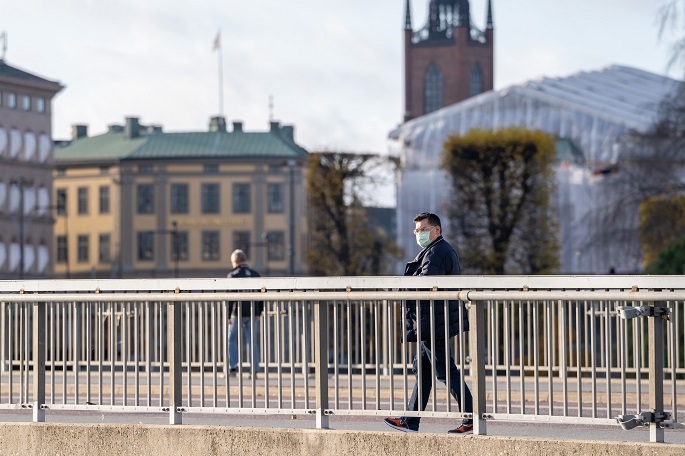Sweden's ICUs under pressure as COVID-19 cases exceed 900,000
Published : 20 Apr 2021, 19:19
The number of COVID-19 patients requiring intensive care keeps rising in Sweden, and that of the confirmed cases now exceeds 900,000, the authorities said here on Tuesday, reported Xinhua.
Despite the ongoing vaccination campaign, the country continues to register high daily caseloads.
On Monday afternoon, Sweden reported that 416 COVID-19 patients were in intensive care units (ICUs) around the country. At the beginning of January, 390 people required ICU treatment.
"The situation is very strained in some places and we do not see that the trend has started to turn downwards," Johnny Hillgren, intensive care physician responsible for the national intensive care register told the news agency TT.
The situation is worrying even though there is still a sufficient number of intensive care beds in the country and no lack of medical equipment and supplies, Hillgren said.
"Intensive care is very staff-intensive. Roughly speaking, each patient requires the care of one staff member. Technical staff and care coordinators are also required, and now we are getting signals that the employees are starting to get very worn out," Hillgren told TT.
The situation is particularly difficult in central Sweden, for example in Uppsala County just north of the capital.
"The current is the worst wave, the situation is worse than during any of the previous ones," Mikael Kholer, Uppsala regional director of health and medical care, told Radio Sweden.
Sweden's infection figures are among the worst in Europe and considerably higher than in neighboring Norway and Finland. According to the Public Health Agency's latest statistics, 789 new infections per 100,000 inhabitants have been confirmed in the past 14 days, pushing the number of confirmed cases since the beginning of the pandemic to nearly 916,830. The death toll stands at 13,825, according to the Public Health Agency.
By Monday, close to 1.9 million out of the total population of 10.4 million had received at least one vaccine dose.
"The vaccination campaign has not reduced the spread of the infection," said epidemiologist Anders Tegnell told journalists, urging the general public to follow the social distancing rules.


